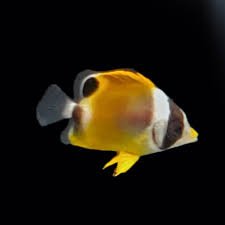Dragons and Their Relationship with Celestial Elements, Stars, and the Heavens in Chinese Culture
Dragons have always occupied a central place in Chinese cosmology, representing divine forces, cosmic balance, and celestial influence. Unlike their Western counterparts, Chinese dragons are not monstrous beasts but celestial beings associated with the heavens, stars, and natural elements.
In traditional Chinese culture, dragons are believed to govern the skies, control rain and weather, and influence the movement of stars and planets. From ancient astrology and mythology to imperial symbolism, dragons have long been linked to heavenly power and celestial harmony.
This article will explore how dragons interact with celestial elements, including their roles in astronomy, mythology, and spiritual beliefs, as well as their impact on astrology, Feng Shui, and imperial rule.
1. The Dragon as a Celestial Being in Chinese Cosmology
Dragons as Heavenly Creatures
In Chinese tradition, the dragon (龙, lóng) is one of the most powerful celestial creatures. It is often seen flying through the skies, controlling the clouds, rain, and winds.
Chinese dragons are classified into different types, many of which have direct connections with the heavens and celestial bodies:
- Tianlong (天龙) – The Celestial Dragon: Guardian of the gates of heaven, responsible for protecting the divine realm.
- Shenlong (神龙) – The Spiritual Dragon: Controls weather patterns and cosmic forces, linking the earth to the heavens.
- Fucanglong (伏藏龙) – The Hidden Treasure Dragon: Resides deep within the earth, symbolizing the balance between celestial and earthly energy.
These dragon classifications demonstrate their deep connection with cosmic elements, acting as guardians, messengers, and enforcers of universal harmony.
The Dragon and the Concept of Yin-Yang
Dragons are often depicted as embodying Yang (阳), the active cosmic force, which is balanced by Yin (阴), represented by the phoenix. This balance reflects the universe’s order, where dragons help maintain the flow of Qi (气, vital energy) between heaven and earth.
- Dragons (Yang): Represent movement, strength, and cosmic activity.
- Phoenix (Yin): Symbolizes grace, tranquility, and harmony.
In Chinese imperial culture, the emperor was seen as the “Son of the Dragon,” ruling with the mandate of heaven, ensuring that celestial order was maintained on Earth.
2. Dragons and Their Connection with Stars and Astrology
The Azure Dragon (Qinglong) and the Four Celestial Guardians
In Chinese astronomy, the Azure Dragon of the East (青龙, Qīnglóng) is one of the Four Celestial Guardians (四象, Sìxiàng), each of which represents a cardinal direction and a group of stars.
The Four Celestial Beasts and Their Astronomical Significance
- Azure Dragon (Qinglong, 青龙) – Governs the East, associated with Spring and renewal.
- White Tiger (Baihu, 白虎) – Governs the West, representing Autumn and strength.
- Vermilion Bird (Zhuque, 朱雀) – Governs the South, symbolizing Summer and fire.
- Black Tortoise (Xuanwu, 玄武) – Governs the North, linked to Winter and wisdom.
These four beasts are deeply tied to the Chinese star system, representing groups of constellations that move through the sky each season. The Azure Dragon, in particular, is believed to guide and influence the stars in the Eastern sky.
The Dragon Constellation and the Chinese Zodiac
Chinese astrology assigns a celestial influence to each year in the lunar calendar, with the Year of the Dragon being one of the most revered cycles.
- Those born in the Year of the Dragon (龙年, Lóngnián) are believed to have strong celestial energy, marked by power, wisdom, and success.
- The Dragon is the only mythical creature in the Chinese zodiac, further reinforcing its spiritual and celestial status.
Many emperors and rulers have timed their reigns and significant events to align with the Dragon’s influence, believing it would bring prosperity and harmony.
3. Dragons in Chinese Mythology and the Celestial Realm
The Dragon Kings and Their Role in the Celestial Court
In Chinese mythology, the Dragon Kings (龙王, Lóngwáng) are powerful rulers of the seas, clouds, and rain, and they report directly to the Jade Emperor (玉皇大帝, Yù Huáng Dàdì), the supreme deity of heaven.
There are four major Dragon Kings, each controlling a cardinal direction of the sea:
- East Sea Dragon King (敖广, Áo Guǎng) – Governs the Eastern Oceans and weather.
- South Sea Dragon King (敖钦, Áo Qīn) – Controls tropical storms and rain.
- West Sea Dragon King (敖闰, Áo Rùn) – Oversees the mountains and rivers.
- North Sea Dragon King (敖顺, Áo Shùn) – Manages snow and ice.
These celestial rulers interact with human emperors, Taoist sages, and celestial beings, influencing the movement of the stars and cosmic balance.
The Dragon as a Messenger Between Heaven and Earth
Many ancient myths describe dragons as celestial messengers, acting as intermediaries between gods and humans. They are said to:
- Deliver divine decrees from the Jade Emperor.
- Carry immortals across the heavens.
- Guide celestial energies to bless or punish the world.
One famous myth tells of Emperor Yao (尧帝), who prayed to the celestial dragon to end a great drought, showing how dragons could control both natural and cosmic forces.
4. Dragons in Feng Shui and Celestial Energy Flow
The Dragon Vein (龙脉, Lóngmài) and Cosmic Energy
In Feng Shui, dragon veins (龙脉, Lóngmài) are powerful energy lines believed to connect mountains, rivers, and the stars. These veins influence:
- The prosperity of cities and palaces.
- The balance of cosmic energy in a landscape.
- The health and success of dynasties.
Dragon Symbolism in Temples and Palaces
- Dragon roofs on imperial palaces are designed to channel celestial energy.
- Dragon pillars in temples are believed to connect heaven and earth, ensuring spiritual harmony.
Feng Shui masters use dragon imagery to align human settlements with celestial forces, ensuring fortune, stability, and longevity.
5. The Modern Influence of Celestial Dragons
Even in contemporary China, the dragon’s celestial symbolism continues to inspire:
- Space exploration: China’s lunar missions are named after celestial beings like Chang’e, and the dragon remains a symbol of technological progress and cosmic ambition.
- Astrological beliefs: Many people still consult dragon-related astrology when planning weddings, business ventures, and political decisions.
- Cultural festivals: The Dragon Boat Festival (端午节, Duānwǔ Jié) celebrates the power of dragon energy, aligning with seasonal and cosmic rhythms.
Conclusion: The Dragon as a Celestial Guardian
From ancient mythology to modern space exploration, the dragon remains deeply connected to the stars, planets, and heavens in Chinese culture. Representing divine power, cosmic balance, and celestial energy, the dragon continues to guide spiritual beliefs, astrological traditions, and Feng Shui practices.
Whether protecting imperial dynasties, influencing the zodiac, or guiding cosmic forces, the Chinese dragon remains a timeless symbol of the universe’s eternal order and celestial wisdom.



